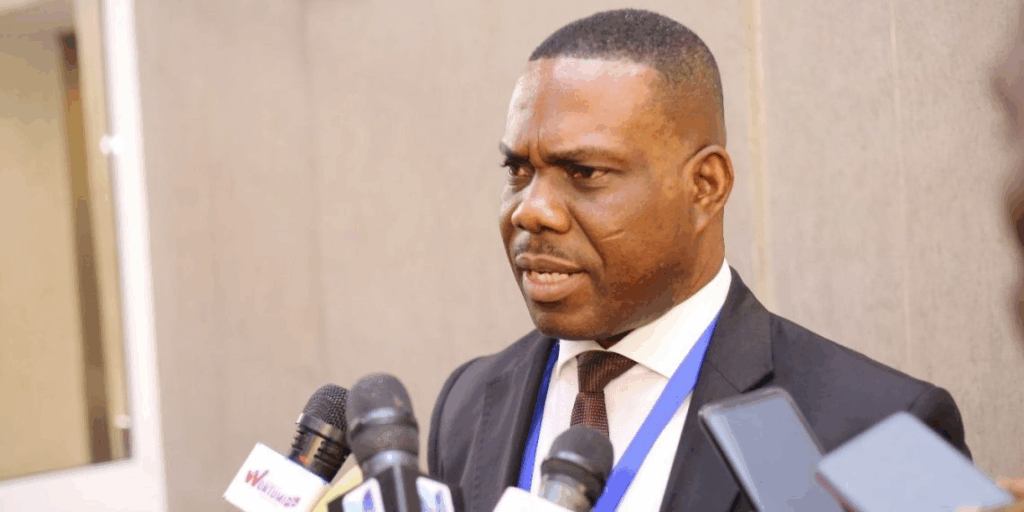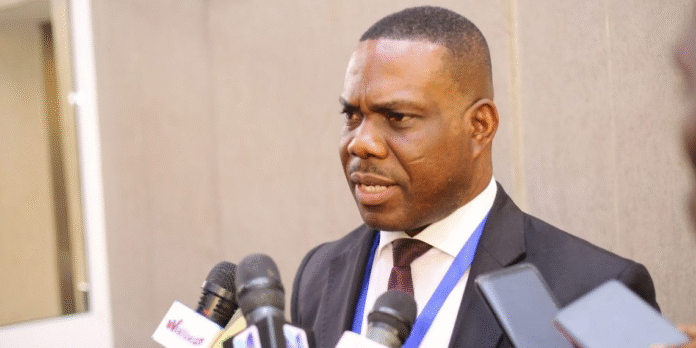
Former Director-General of the Internal Audit Agency, Dr Eric Oduro Osae, says there is something fundamentally wrong with Ghana’s public financial system.
He was reacting to the Auditor-General’s 2024 report, which revealed that the country recorded a staggering GH¢18.4 billion in financial irregularities, more than double the GH¢8.8 billion reported in 2023.
“The report is not good. We should not be happy at all, especially since the ¢18 billion you indicated is that of only public corporations and statutory institutions, the majority of which are SOEs.
“And for it to increase by 109% is something that should not be acceptable. Worst of it is that 84.5% of them are recoverable,” he said on Newsfile on Saturday.
Dr. Osae was disturbed by the composition of the irregularities.
“It includes what they call intergovernmental agency debt. I ask myself, how come we cannot have a simple reconciliation forum? For instance, if Ghana Water Company owes ECG for electricity consumed, ECG owes Ghana Water Company for water consumed. Can’t we have a simple reconciliation forum to resolve this issue? How come that it became an audit query issue?”
He also lamented issues about “unretired interest,” saying “the bottom line is that it is a no-no.”
He questioned what has been happening despite earlier efforts.
“Before I even left office as the Director General of the Internal Audit Agency, we were pushing for strengthening control systems, internal audit systems and the laws that can help us prevent some of these things.”
He expressed alarm at the trend across public institutions.
“Apart from the public corporations, we look at that of the District Assembly’s Common Fund, which has also increased by 317%. In 2023, it was ¢49 million. It has now moved to ¢205 million.
“Then you look at pre-university educational institutions, that has also increased by 213% from ¢7 million to ¢23 million.”
“Now, when you look at these figures, it tells you that there is something fundamentally wrong with our system. This is not the issue of politicians. And I always say that if we want to fight corruption, prevent abuse, misuse and the loot, we should balance our energies. It is not about the politicians.
“The politician may have a role to play in them, but the technical officers who see themselves as permanent government—no politician signs checks. The politicians approve, but the checks are signed by the finance officers and the chief directors who manage this system. So I think we have to purge the system.”
While agreeing that politicians may benefit from the system, Dr. Osae insisted the problem runs deeper.
“The politicians have a maximum of eight years. But these are people who call themselves the permanent government. Every government will come and go. They are there, and they teach some of them how to do these things. Bottom line is, let us purge the system, let us clean the system.”
He wants the Auditor-General to do more.
“The Auditor-General said 84% is recoverable. He should be able to tell us how he’s going to recover, and the recoveries for the previous years. But I think that heads must roll.
“Every year, we talk about these things and we leave them. But if we can prosecute people, we will be making headway. What happened to the surcharge powers of the Auditor-General?”
He was emphatic that laws exist but are not being enforced.
“The Auditor-General has the right to surcharge people and make sure that we get some recoveries. So I think the laws are not being implemented well, and they are not biting.”
On whether the laws are weak, he said, “I think it is a lack of willingness to enforce. Because if we crack the whip and we get heads rolling, people appear before the Public Accounts Committee.
“Then, after that, the Public Accounts Committee will give directives. The Public Accounts Committee does not implement their own decisions. The Attorney General will take over, and nothing will happen. I think that it’s about time we implement the recommendations to the latter.”
DISCLAIMER: The Views, Comments, Opinions, Contributions and Statements made by Readers and Contributors on this platform do not necessarily represent the views or policy of Multimedia Group Limited.
DISCLAIMER: The Views, Comments, Opinions, Contributions and Statements made by Readers and Contributors on this platform do not necessarily represent the views or policy of Multimedia Group Limited.


